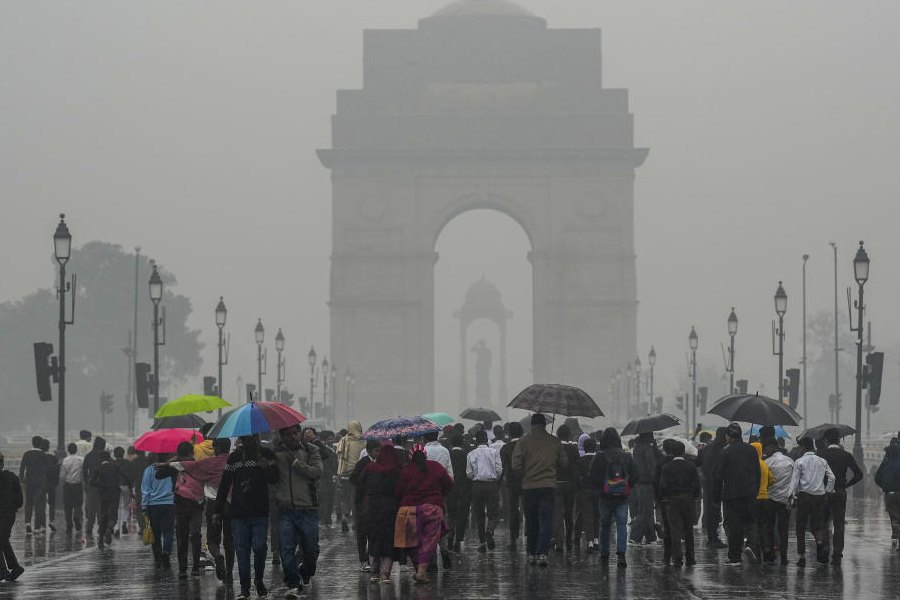Delhi Chief Minister Rekha Gupta on Thursday said the city is set to witness its first-ever artificial rain through cloud seeding as preparations for the ambitious pollution-control initiative have been completed.
A successful trial of the project was conducted earlier in the day in the Burari area, Gupta said in a post on X.
"For the first time in Delhi, preparations have been completed to induce artificial rain through cloud seeding, marking a significant technological milestone in the capital's fight against air pollution. Experts on Thursday successfully conducted a trial test in the Burari area.
"According to the weather department, cloudy conditions are expected on October 28, 29, and 30. If the weather remains favourable, Delhi is likely to witness its first artificial rain on October 29," her post read.
"This initiative is not only technologically historic but also establishes a scientific approach to combatting pollution in Delhi. The government aims to clean the capital's air and balance its environment through this innovation," Gupta said.
Delhi Environment Minister Manjinder Singh Sirsa thanked Gupta and Prime Minister Narendra Modi for their support in ensuring timely approvals for the project.
"Today, a trial seeding flight was conducted from IIT Kanpur to the Delhi area via Meerut, Khekra, Burari, Sadakpur, Bhojpur, Aligarh, and back to IIT Kanpur. Cloud seeding flares were fired between Khekra and Burari and over the Badli area using pyro techniques," Sirsa said in a post on X.
He added that the flight served as a proving mission to assess the cloud-seeding system's capabilities, aircraft endurance and coordination among all participating agencies.
The cloud-seeding project, jointly developed by the Indian Institute of Technology (IIT), Kanpur, and the Delhi government, aims to explore artificial rainfall as a method to reduce particulate-pollution levels in the city during the post-Diwali smog season.
Delhi's much-awaited artificial rain experiment was supposed to be conducted on July 4 but was postponed.
Last month, the city government signed a memorandum of understanding (MoU) with the IIT-Kanpur for five cloud-seeding trials, which are expected to be conducted in northwest Delhi.
The project, approved by 23 departments, including the Directorate General of Civil Aviation (DGCA), aims to explore whether artificial rain can be a viable solution to tackle rising pollution levels during the winter months.
Funds have already been transferred to the IIT-Kanpur, which will deploy its own aircraft for the operation. According to a DGCA order, the activity will be carried out under visual flight rules, without remuneration and only after obtaining clearances from state and local authorities.
The cloud-seeding operations are authorised between October 1 and November 30, and will follow strict safety, security and air traffic control guidelines.
Permission has been granted under rule 26(2) of the Aircraft Rules, 1937, allowing the IIT-Kanpur's Department of Aerospace Engineering to conduct the activity using a Cessna 206-H aircraft (VT-IIT).
The project is being conducted in coordination with experts from the Indian Institute of Tropical Meteorology (IITM), Pune, and the India Meteorological Department (IMD).
Except for the headline, this story has not been edited by The Telegraph Online staff and has been published from a syndicated feed.











